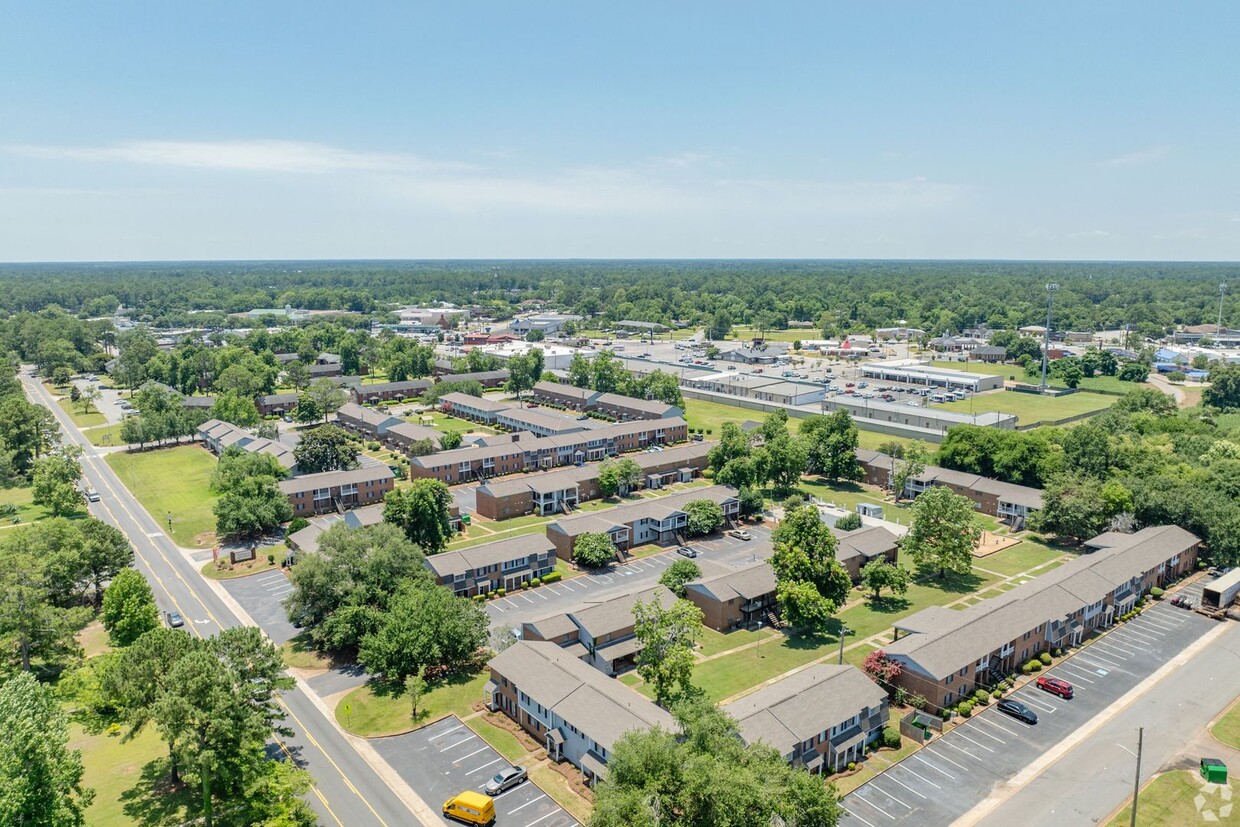Still, real estate is a distinct asset class that’s simple to understand and can enhance the risk-and-return profile of an investor’s portfolio. On its own, real estate offers cash flow, tax breaks, equity building, competitive risk-adjusted returns, and a hedge against inflation. Real estate can also enhance a portfolio by lowering volatility through diversification, whether you invest in physical properties or REITs.
How To Build a Housing Portfolio for Rental Income – Factors to Consider Before Investing in Single-Family Rental Properties
There’s no doubt 2020 was a roller-coaster year for much of the country, to say the least. However, that doesn’t mean it passed without new opportunities for investors looking to start a real estate portfolio or grow their existing one.
The pandemic presented a significant shift in how most of us work and live, with remote work driving the change. With more people having the option to work anywhere and looking for more space to accommodate home offices, the single-family rental (SFR) market was a bright spot in the hard-hit real estate landscape.
As we begin to wrap up off 2023, the positive trends for SFRs look poised to continue, making these an attractive option for investment.
Here’s what you need to consider if you want to start building a single-family housing portfolio of your own. The basic principles will also apply if you’re considering multifamily properties for purchase.
The Current State of the Single-Family Housing Market
According to Gallup, over 60% of workers reported the pandemic has shifted them to their home office space — even if that just means their kitchen tables. It shouldn’t come as a big surprise: Some who now can work from anywhere have used this shift as an opportunity to relocate, especially to somewhere they can have more space. Pew Research Center found that just over 20% of those polled moved due to COVID-19 or knew someone who did, with younger adults making up most of that group.
For those who moved — either permanently or temporarily — smaller cities across the Sunbelt, in states like Texas and Georgia, saw the most gains. The Sunbelt has seen substantial population growth over the past decade, primarily driven by millennials looking for more affordable options and companies relocating jobs to the region.
Many investors are banking on that trend continuing.
“I like to buy in very stable markets,” explained John A. Kilpatrick, managing director of Seattle-based Greenfield Advisors and a director of the Washington State Economic Development Finance Authority. “My preference is markets that have a very solid blue-collar workforce demand, such as college towns, state capitals, and other ‘tertiary cities.'”
Demand is one big reason why investors are looking at single-family opportunities. Research from the National Home Rental Council shows that the need for more space and affordability are driving people to look at renting single-family homes. A Q2 2023 study shows single-family rental occupancy rates are at 97%, and over half of the landlords cited increased leasing speeds.
How to Get Started Investing in Housing
“Make sure to educate yourself,” said Greg Martin, a Florida-based real estate investor with KRL Group FL and president of Think Safe Insurance, LLC. “Local Real Estate Investor Associations (REIA) can be great places to learn about real estate investing and network with other investors, contractors, insurance agents, and others that you will need to be successful.”
Is also important to consider your goals, said Kilpatrick. “You can buy real estate for capital gains, for income, or both, but it’s something of a zero-sum game.”
From there, consider your options. For many single-family investors, the goal is to rent the home out for the long-term. As with anything, there are some pros and cons to think about before you dive in.
The benefits can include consistent monthly cash flow from rent, potential tax advantages and increased home value, and less risk than typical investments due to market fluctuations. On the flip side, you’ll still need to deal with upkeep. Plus, there are additional yearly and monthly fees to consider, and you might lose money when your property is vacant.
Regardless of how or why you plan to get into residential investing, there are a few key areas experts recommend focusing on at the start.
Look at the Fundamentals
For many potential SFR investors, the first consideration is figuring out how much you’ll be able to collect in rent each month. That number can drive everything. In these cases, factors such as location, proximity to public transportation or walkability, and space — including a yard, deck or other features of the lot — can impact rent. You’ll need to think about all of these factors.
“When looking at a property, the first thing you need to determine is how much you are going to be able to rent it for,” said Brittany Hovsepian, owner of The Expert Home Buyers, a real estate investment company in the Central Savannah River Area. “This will determine how much you are ultimately going to be able to pay for the property (minus repair costs).”
Once you have a general idea of how much you can afford and get back in rent, your job is only beginning. You’ll also need to consider all the other expenses involved with property ownership.
Martin broke it down: “Determine taxes, insurance, property management, vacancy, and any utilities that the owner is responsible for.” Then, he said, “take the rent and subtract all the expenses, and subtract your desired profit.” The remaining number will give you a rough estimate of what kind of income and cash flow you’ll need each month.
Another thing to have on hand, said Kilpatrick, is reserve funds for emergency replacements. “Roofs, appliances, hot water heaters, and HVAC systems all have finite lives.”
Figure Out Your Finances
Another consideration is how you’re going to pay for these new investment properties. Some investors use cash, but getting a mortgage is also an option.
“Getting financing for an investment property is not as difficult as one may think, especially if they have a low debt-to-income ratio to start with,” said Hovsepian. “Lenders are going to generally want to see six months cash on hand to be able to pay the mortgage in case you have a lapse in renters.”
Something else many investors consider is forming a Limited Liability Company (LLC). It’s a business entity that can offer some liability protection as well as potential tax benefits. However, it might not be the best option for some investors, especially those just starting.
Martin noted that while LLCs can provide additional layers of protection, forming an LLC has upfront fees and costs. Plus, getting financing through an LLC can be more difficult. “I was surprised how limited my options were when I first purchased a property with an LLC,” Martin said. Since an LLC can potentially make buying an investment property more difficult, it can derail some first-time investors.
Martin recommended new investors wait to form an LLC until necessary. For most, that means going through the process of buying the property, getting insurance, and taking care of the business side of things first to get comfortable with the process before deciding if an LLC fits your needs.
Consider Property Management
Another cost some investors will want to think about is property management. If you plan to keep your property for the long term and rent it out, you’ll have to take care of everything, from finding tenants to repairs.
Property management firms can help, for a fee. We typically recommend clients hire a property manager. Martin agreed, suggesting that even if you plan on taking care of most of the repairs yourself, you should include a property management fee in your budget. That way, you have the option if needed without cutting into your profit. Depending on your free time and level of handiness, a property manager might be worth it.
Something else property managers can help you with is tenant relations. “Collecting rent and evicting tenants is the hardest part,” said Kilpatrick. “If you’re going to self-manage, be very familiar with your local landlord-tenant laws.”
Make the Right Choice for You
Regardless if you’re a first-time investor or someone who is looking to diversify their portfolio, the residential market is worthy of attention. With a shift in demand coupled with changes in the workforce, there’s certainly potential for investors. The key is running the numbers and determining the best choice for your needs.
The Bottom Line
Despite all the benefits of investing in real estate, there are drawbacks. One of the main ones is the lack of liquidity (or the relative difficulty in converting an asset into cash and cash into an asset). Unlike a stock or bond transaction, which can be completed in seconds, a real estate transaction can take months to close. Even with the help of a broker, it can take a few weeks of work just to find the right counterparty.
Want to listen to those who can give good financial advice ?
At SIMM Capital our investment strategy is to seek the best assets that hold the largest opportunities to improve on management and value, delivering in rent growth year over year that will result in cash out refinance events and high quality returns or how we can help click the link – www.simminc.com




Recent comments